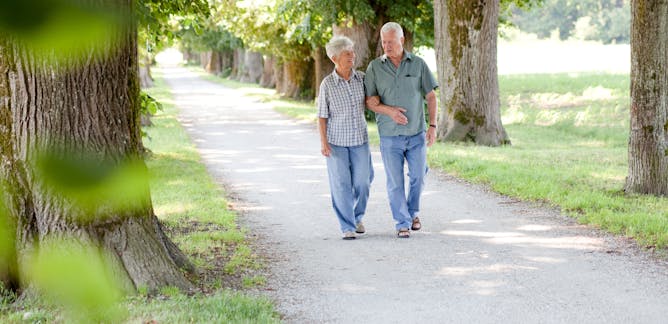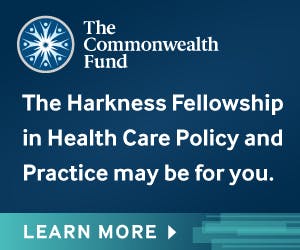|
|
|
Editor's note
|
|
Antioxidants. We know them as good little things found in some of the foods we eat – but probably haven’t given them much thought beyond that. I learnt a bit more about them this week, thanks to Ralph Martins, who has written about the different foods you can eat that may reduce your risk of developing Alzheimer’s disease.
As we age, our metabolism becomes less efficient, and is less able to get rid of compounds generated from what’s called “oxidative stress”. The toxic compounds generated by oxidative stress steadily build up, slowly damaging the brain and eventually leading to symptoms of Alzheimer’s disease. Enter antioxidants.
Unfortunately, we can’t say “eat this and you won’t get Alzheimer’s disease”. But there is evidence suggesting eating certain foods, thanks to their antioxidant properties, can preserve our cognitive function. These include oily fish, berries, green vegetables and herbs, red and purple sweet potato, and beetroot. The good news is, what’s good for your body is also generally good for your brain, and vice versa.
|
Phoebe Roth
Assistant Editor, Health+Medicine
|

|
|
Top story
|

Eating healthy foods doesn’t just improve our physical health. It can benefit our mental health, too.
From shutterstock.com
Ralph Martins, Macquarie University
Many chronic diseases increase our risk of Alzheimer's disease. This link between our bodies and our brains means certain healthy choices could protect our cognitive function.
|
From the archives: Alzheimer's disease
|

Margaret Morris, UNSW; Michael Kendig, UNSW
We pick healthy foods to look after our bodies, but research shows certain healthy choices can also benefit our brains.
| |

Helen Macpherson, Deakin University
Although we can’t change our age or genetic profile, there are fortunately several lifestyle changes we can make that will reduce our dementia risk.
|

Yen Ying Lim, Florey Institute of Neuroscience and Mental Health; Rachel Buckley, Florey Institute of Neuroscience and Mental Health
Alzheimer's disease is the most common form of dementia, but treatments are still far from successful in clinical trials. Here is what we know about the disease, and what is yet to be uncovered.
| |

Thomas Astell-Burt, University of Wollongong; Xiaoqi Feng, University of Wollongong
Some previous research suggests people living in rural areas may be at a higher risk of developing Alzheimer’s disease. But these results tell a different story.
|
|
|
Expert answers to serious, weird and wacky questions
|

Joseph Lanzafame, Rochester Institute of Technology
What exactly is inside those red fire extinguisher canisters, and does it work better than water?
| |

Janie Hoormann, The University of Queensland
If you got too close to a black hole, it would suck you in and you'd never be able to escape, even if you were travelling at the speed of light.
This point of no return is called the event horizon.
|
|
|
Top picks from the week
|

Fertility awareness apps assist women to track when they are at their most fertile each month.
From shutterstock.com
Deborah Bateson, University of Sydney
A growing number of women may be looking to non-hormonal methods of contraception, in the form of fertility awareness apps. But apps are not likely to be as effective as other forms of contraception.
|

Hundreds of supporters of the bill to decriminalise abortion in NSW rallied outside parliament after conservative MPs delayed debate on the issue.
Dean Lewins/AAP
Helen Pringle, UNSW
Although abortions have been legally performed in NSW for years, doctors have long called for greater clarity in the law in regard to the possible criminality of their actions.
|

Shayna Jack said she did not knowingly take Ligandrol.
Darren Engliand/AAP
Nial Wheate, University of Sydney
Ligandrol is used to help repair and build mass and is banned for use by professional athletes because it can give a competitive advantage.
|
|
|
| |
Featured jobs
|

|
University of Western Australia — Perth, Western Australia
|

|
University of Melbourne — Parkville, Victoria
|

|
Deakin University — Burwood, Victoria
|

|
CSIRO — Newtown, Victoria
|
|
|
|
| |
| |
| |

|
| |
| |
| |
Featured events
|

|
245 Punt Road , Richmond, Victoria, 3121, Australia — Niagara Galleries
|

|
Learning and Teaching building, 19 Ancora Imparo Way, Clayton campus, Monash University, Clayton, Victoria, 3800, Australia — Monash University
|

|
UNSW Sydney, Kensington, New South Wales, 2052, Australia — UNSW
|

|
Adams Auditorium, Mezzanine Level, Building 111, Northcott Drive, UNSW Canberra at ADFA, Canberra, Australian Capital Territory, 2612, Australia — UNSW
|
|
|
|
| |
| |
| |
| |
| |
|
|
|
|
|
|
|